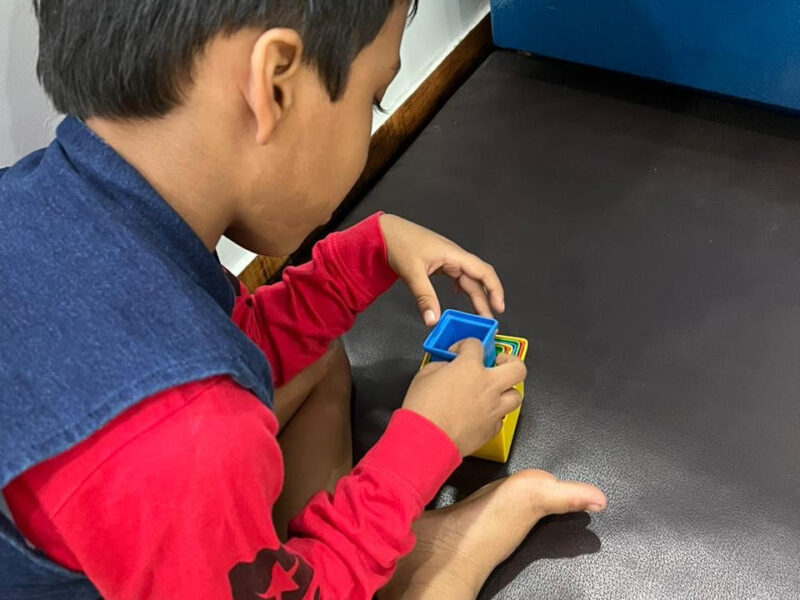Relationship Development Intervention (RDI) is a family-based, behavioral treatment which addresses the core symptoms of emotional and social development in autism.
What are the primary features of RDI:
- Parents are trained as primary therapists
- It promotes flexibility in perceiving social situations, coping with change, forming emotional connections by engaging with others
- It encourages child to use verbal or non-verbal communication to interact and share feelings,improve social skills and self-awareness
- The goals in RDI are established based on the level of the child and the communication method they use.
- RDI is only effective if incorporated in daily life with the child.
6 stages of play that every child goes through:
- Unoccupied Play (Birth-3 Months)
At this stage, the baby is just making a lot of movements with their arms, legs, hands, feet, etc. They are learning about and discovering how their body moves.
- Solitary Play (Birth-2 Years)
This is the stage when a child plays alone. They are not interested in playing with others quite yet.
- Spectator/Onlooker Behavior (2 Years): During this stage a child begins to watch other children playing but does not play with them.
- Parallel Play (2+ Years): When a child plays alongside or near others but does not play with them this stage is referred to as parallel play.
- Associate Play (3-4 Years) When a child just starts to interact with others during play. A child might be doing an activity related to the kids around him, but might not actually be interacting with another child. For example, kids might all be playing on the same piece of playground equipment but all doing different things like climbing, swinging, etc
- Cooperative Play (4+ Years) : When a child plays together with others and has interest in both the activity and other children involved in playing they are participating in cooperative play. Eg: group games like passing the parcel etc. Associate Play (3-4 Years)
5 ways to support parents with a special needs child
- Understand their issues: If you’re a family member or just a concerned friend, take time to understand the child’s problem to support them and the parents in the best possible way
- Avoid pity: Being sympathetic is worse than being ignorant since pity doesn’t help anyone and makes the other person feel isolated.
- Help in any way you can: Whether it is offering to buy groceries, or taking the child to his therapy appointments, or babysitting for them, or being an emotional outlet for the parent, try to help them to the best of your capacity.
- Be inclusive:Families with a special needs child tend to become isolated and may feel excluded from social circles because the role of a primary caregiver is like a full time job. Hence, try to include them while making plans by accommodating their needs and include them in social gatherings.
- Help the parents to help their child: If you find that the parents are depressed or not coping well with their child’s diagnosis, try to help them to come to terms with it so they can help their child. You can do this by offering emotional support, helping them find professional help, and being more accepting of their child so they can accept it better as well.



